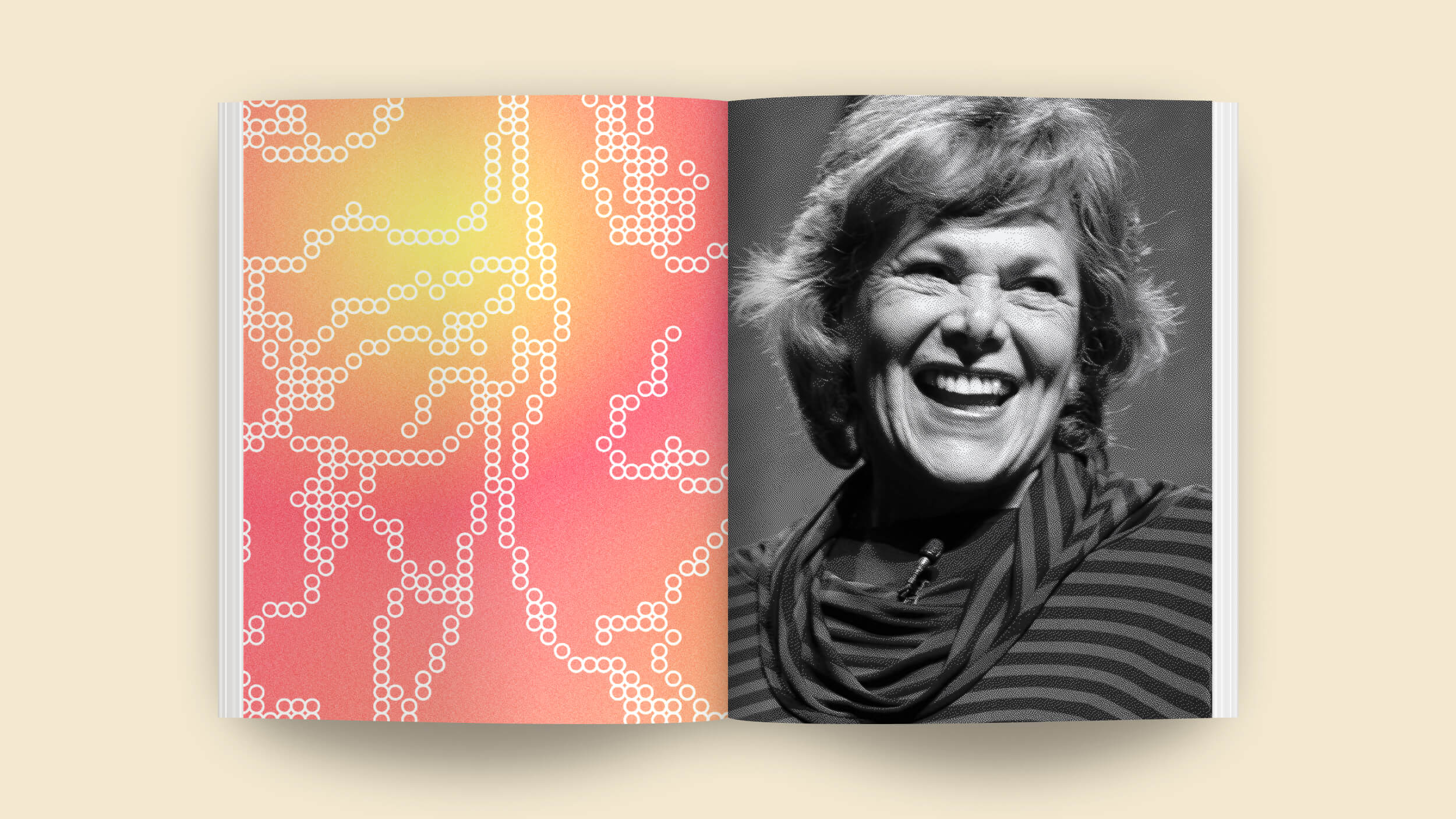Boredom and humor are intricately connected.
Question: Are people fundamentally funny?
Josh Lieb: You know religiously I wanna believe people are fundamentally good. Yeah I think people . . . (a) I think people are fundamentally good; and (b) I think people are fundamentally humorous. And . . . and people fundamentally want to laugh. And you know if someone is not laughing, that’s the exception. That’s perversion, because I think you can’t be turned from someone who likes to laugh to someone who doesn’t; but I think it’s almost impossible to go the other way. I don’t think . . . No one’s ever met a humorless person who became a funny one.
Question: Can humor be learned?
Josh Lieb: No. It . . . it . . . You can learn the forms or whatever, and maybe you could even learn the form so well that you can fool most people. But you wouldn’t be able to fool the genuinely funny people.
Question: Can women be funny?
Josh Lieb: Of course.
Question: Why do people value humor?
Josh Lieb: Boredom, you know? And I think also just the . . . There’s such intense psychic pain just being alive, and all this stuff going on around you and on top of you. And it’s suffocating. You know humor is a release. It is joyful, you know? It’s like sex, but you can have it more often. It’s . . . Yeah, it’s like cheap sex. It’s like . . . You can do it all the time.
Question: Why do people value humor?
Josh Lieb: Boredom, you know? And I think also just the . . . There’s such intense psychic pain just being alive, and all this stuff going on around you and on top of you. And it’s suffocating. You know humor is a release. It is joyful, you know? It’s like sex, but you can have it more often. It’s . . . Yeah, it’s like cheap sex. It’s like . . . You can do it all the time
Question: Is there a connection between humor and religion?
Josh Lieb: You know I don’t know. It’s sort of cliché to have a funny rabbi. You know every rabbi thinks he’s pretty hilarious, or at least they do nowadays. In the . . . in the . . . in the old days, I think they . . . they thought they . . . they were pretty serious. You know I don’t know. I could wax philosophical and say, “Well there is, you know . . . comedy and religion are about some sort of aspiration or something higher,” or you know, “to elevate us. And when we laugh,” you know, “our souls become bigger.” But I don’t think so. I think . . . I think rabbis are smart people, and I think smart people tend to be funny. So maybe that’s the connection. By the way I should have been drinking coffee. But I don’t . . . If there’s any connection whatsoever . . . You know I think there must be some connection between religion and comedy because while . . . because the people I know in comedy are either pretty religious or– and that’s the minority – or they’re . . . they swing the other way completely and are rabidly atheistic. So maybe there’s some emotional switch that gets clicked on either way.
Question: How has comedy changed in the last two decades?
Josh Lieb: That’s a good question. Comedy is a lot more self-aware. I mean _________ audience is a lot more self-aware. You know when I . . . You’re not just making jokes necessarily anymore. You’re making jokes on jokes. And your jokes have reference to other jokes. And it might have been in the old days, only other people in the comedy business would know these things; but now everyone’s . . . We’ve got such a vast cultural backlog on DVD and everything that everyone knows every Monty Python sketch. And everyone knows this and that; that we’re all kind of . . . we and the audience are making references to . . .. . . and winking at them from things that are 40 years old. And that’s it. And comedy probably hasn’t changed as much as we think it has either. I mean that’s . . . that . . . that . . . I can say, “Okay, we all have that reference point,” but it’s probably in a small way not that big a deal. And . . . and . . .That’s a good question, because I would say we still laugh at slapstick, but we don’t as much. It would be very hard for, you know . . . to get away with something that’s like as primitive as like an early ‘60s, Jerry Lewis movie right now. You just . . . You know even the kids aren’t laughing at that anymore. I mean you got Mr. Bean. And that’s nice, and that’s nice slapstick; but it sometimes seems more sophisticated. But that . . . that . . . that might just be because of more of modern style. If you lived in a village and you didn’t have TV, and a clown came through you thought that was the funniest damn thing you’d ever seen in your life. You know if he fell on his butt? Amazing. If you got, you know, eight hours of TV everyday and you could see amazing . . .you know you could see Marcel Marceau, and you could see Lenny Bruce, and you could see whatever whatever. The exposure makes you more of a critic, you know? If you’ve only eaten peanut butter and jelly sandwiches all your life, you think those are pretty great. But you know once you’ve tasted caviar, forget about peanut butter.
Question: Where is comedy headed?
Josh Lieb: I don’t know. There’s a . . . There’s an awful lot of it being produced. I think what we’re doing now, you know, is an area where we’re going to see a lot of comedy produced just in smaller . . . just with the Internet, sort of the powers given to people just to produce things. I mean we’re going to see things on YouTube. You know we’re going to see people have a funny idea and shoot it on their TV camera and get it out there that afternoon. But people are always also gonna wanna see bigger, you know, more expensive things. And they’re always gonna wanna see sitcoms, I think; or big, funny movies. You wanna see something nice, you know. It’s like okay, YouTube. That was a funny video that guy made, but I . . . I want a . . . I want a compelling story, too. You know people like stories. We’ve always liked stories. So I . . . I . . . I don’t . . . I don’t think comedy is gonna change. Okay here. I don’t think the foreign comedy __________ is gonna be all that different in the future. Now you know I . . . I don’t know which way the world is gonna go; but if the world gets darker, then the comedy will probably become more darker or become more violent. We might be seeing some of that now.
Question: Whose work are you watching most closely?
Josh Lieb: You know I don’t . . . I tend not to watch any comedy. Otherwise it would be my whole life. And also you know, it’s so critical . . . It’s impossible just to watch anything and enjoy it, you know. So I . . . I tend to keep away from it as much as possible.
Question: How is technology changing comedy?
Josh Lieb: I think it’s changing it for . . . It’s changing it. There’s really no telling. Yeah it’s better. It’s . . . It’s . . . It’s nice to be able to have a DVD of funny stuff. And you know it’s nice to be able to go on YouTube and watch these funny guys. But you know I saw these funny guys doing a David Blaine impression the other day. That was funny. You know I got to watch that and now I don’t have to see it anymore. But it’s . . . it’s . . . it’s out there. That R. Kelly trapped in the closet. Like that’s all great stuff, and it’s there. And so that’s all for the good. As a, you know . . . This isn’t strictly about computers, but you know as a . . . as a visual agent, you know, written comedy is being non-existent. You know there’s . . . there’s a couple of pages in the front of the New Yorker and that’s really it. So that’s kinda sad. But you know there’s plenty to read if you want to.
Question: Is ethnic humor ever out of bounds?
Josh Lieb: I can certainly make fun of my people, and others can too. I mean it . . . it’s . . . I feel like I’m . . . not I’m, but I think as a Jew it’s sort of a specific case, because there are a lot of Jewish writers. And we tend to go to the Jew well a lot in comedy. And to be honest it’s really easy, and I don’t love that. And to be honest it’s really easy, and I don’t love that. I think it’s a little too easy. You know ethnically, I think I find a lot of comedy writers are Jewish and a lot are Irish. I’m not sure why those two streams sort of came together, but you know it’s a . . . we tend to get along, so it’s nice. Can . . . I think some Jewish jokes are very funny, and I think others are, you know, are just . . .are just as . . . just saying the word “Jew” and expecting a laugh. You know and . . . and that’s easy. As far as other ethnicities go, I don’t feel like anything should be out of bounds, you know? I just . . . You know I’m stridently, you know, First Amendment . . . certainly Second Amendment, too. But I like all those amendments, you know? And then again . . . But that said, if you say something offensive, you you know, you can expect to get your ass kicked. You should have the right to say it, though.
Question: Do you self-censor?
Josh Lieb: I think everyone self-sensors. I mean you think awful things. I’m sure you’re thinking awful things right now; but you know we all think terrible, terrible, terrible things. So sometimes the terrible things I think of are jokes. And so I don’t always say those out loud. I’m actually . . . I probably self-sensor a lot less than a lot of people. And I’ve certainly said some terrible things which I regret, but that’s okay.
Question: Has it become easier to self-censor with time?
Josh Lieb: I . . . You know I can’t say I think about . . . You know I would ask you . . . Or I’d ask anyone is it easier for them to self-sensor? Sometimes . . . You know do you walk around saying, “I’m censoring myself right now?” No. But you aren’t telling to every beautiful woman how much you’d like to have sex with her, or every attractive man the same thing if you find both of them equally attractive, you know? You know has it become easier to self . . . I don’t know. I guess when you’re a kid, yeah, you say anything you want. I’m an adult. Now I don’t. I . . . I . . . I would say it’s not any different for a comedy writer or a writer in general than it is for anyone else. I . . . I think we are afforded more freedom. I think I don’t . . . I think writers and comedians don’t have to sensor as much, I think. You know we’re . . . we’re given that latitude. We don’t always use it that well, but we have it.
Recorded On: 9/04/07





